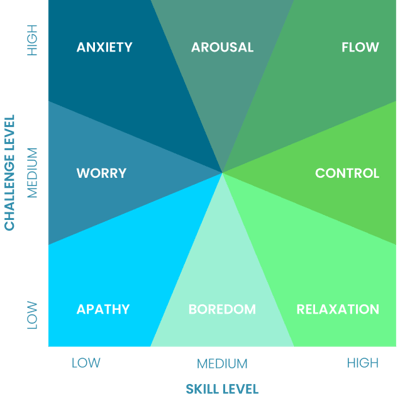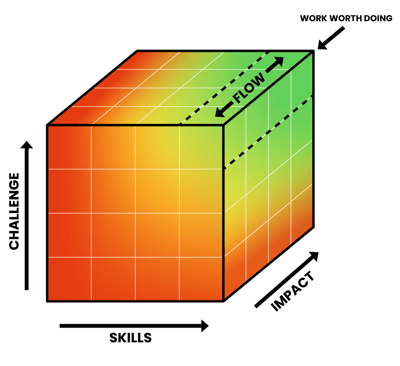10 Books to Enhance Your Productivity
Our Compelling Why is helping leaders build extraordinarily productive, humane, and resilient organizations where team members are focused, aligned, and thriving. Most of our clients are small and midsize companies, but we also have many not-for-profits and highly specialized teams in education, research, and medical fields who leverage our platform. No matter the industry, our customers use our platform to improve their productivity.
We help teams by providing productivity tools and support that enable everyone to align through structure, set and track goals, monitor KPIs, solve issues in meetings, and so much more.
Productivity is about getting more from less. Here are four well-known ways to become more commercially productive:
- Become more efficient.
- Become more effective.
- Increase prices.
- Reduce cost.
I’ve seen too many teams unnecessarily overworked, overwhelmed, or burnt out. Let’s do our part to end that trend. Along with working “on” your business with our concepts, tools, and disciplines, I invite you to check out 10 books to enhance your productivity.
I love this list from blogger Scott Young, so I’ll add my commentary to these excellent books.
The big idea with Getting Things Done (or GTD, as it's known by several of its followers) is that you need a system. Your company needs a business operating system (BOS), and you need a personal operating system to capture, manage, and remind you about the work that needs to be done, including who is accountable for getting it from here to there.

This book has many remarkable takeaways to help your personal and professional lives. For instance, Allen’s insistence on holding a Weekly Review with yourself. You set aside time in your weekly schedule to get “clean, clear, current, and creative to sustain week-to-week control and focus.” I call this Focus Time. We encourage all our team members to have their Focus Time blocked off on their calendars for a chance to problem-solve, prioritize their current tasks, and have an emotional reset.
You can use our platform to follow many of GTD’s principles. Our tools allow you to easily identify and capture issues, To-Dos, goals, your vision, and more.
Focus is essential for productivity. The reason is well-researched — our brains have not evolved for efficient multitasking. Every time we’re interrupted, we lose focus, and it takes time and energy to get back to a proper flow state (more on Flow at the end of this post).

Notifications and smart devices have made getting distracted easier than ever. Newport mentions that our brains are finely tuned to lose focus quickly as a survival mechanism. A rustle in the bushes or a blur in our peripheral vision could have meant life-threatening danger during our lives in the savanna. Now, the knock of Slack, the classic ring of an incoming email, or the litany of beeps from social media tear us away from our work.
Just as I recommend setting away blocks of time to work on your organization’s business operating system, Newport suggests several methods for blocking out time in your daily routines to create intentional moments of productivity through deep work.
Effective executives lead by example. We want our team members to improve and become better and better versions of their best selves. We need to have the same mindset for ourselves. Effective executives grow and develop to continue their journey while learning from their mistakes and planning the best path forward.
Executives are decision-makers. Their choices have consequences that impact others and the health of their organization. We follow agreement-based leadership at Ninety. Instead of relying on antiquated expectations, we desire to form agreements when making decisions. When we can’t reach a consensus, executives and team leaders need to choose. Following this choice, teams need to commit.

I’ve found that this process works best when everyone embodies the organization’s Core Values and continually works on building high-trust relationships with all their Ideal Stakeholders.
Drucker also provides valuable insight into how executives manage their time. “Effective executives,” he writes, “do not start with their tasks. They start with their time. And they do not start with planning. They start by finding out where their time actually goes.” Leaders who increase their awareness of how they use their time are better equipped to weed out distractions and make better decisions.
At Ninety, part of our Senior Leadership Team’s Focus Time includes reviewing how they invested their time during the prior week in each of their core roles, accountabilities, and responsibilities. Comparing our week with our plan for the quarter helps us stay aligned with our goals.
I’m a huge fan of Drucker’s. Pick up any of his books, and I’ll take 3:1 odds that you’ll be astonished by how well they stand the test of time.
Systems are all around us. Climate, government, Einsteinian relativity, and your business. There is only so much we can do to interact and impact the systems in our lives. But the one that Carpenter suggests we need to devote time and attention to is the system describing how our organization operates.
So many entrepreneurs only focus on working in their systems. Sometimes, it takes an outside force, like a mentor or coach, to help us work on our systems.

Taking the time away from the daily grind to ensure we’ve structured our business operating system to work for and with us can pay dividends in time and energy. We created the Vision Builders Workbook to help anyone who needs to step back and create an overarching Vision for their organization.
Carpenter’s wisdom echoes Michael Gerber’s famous The E-Myth Revisited. Specifically, great businesses build repeatable and scalable systems.
I consider this book as a right of passage for anyone who wants to master a trade or craft — whether it’s starting and running a small business or learning how to lead and coach people. Covey integrates the ideas of personal character, effectiveness, and leadership.
The seven habits are:
- Be Proactive
- Begin with the End in Mind
- Put First Things First
- Think Win/Win
- Seek First to Understand, then to Be Understood
- Synergize
- Sharpen the Saw (self-renewal)

At the core of Covey’s teachings are the notions of personal responsibility, discipline, and awareness. He sees our personal development evolve through order-dependent stages from awareness to dependence to interdependence.
I'll be publishing a series of blogs on stages of personal development in the near future on my site, Abbott.work.
The essence of this book is that getting 1% better every day leads to exponential growth. Clear uses research to show how our habits compound to have extraordinary results. Of course, habits can range from negative to positive. So, our positive habits compound to make us more positive, productive, and personable. Alternatively, repeated negative habits increase stress, create negative thought patterns, and spark outrage.
I love how he states his premise in chapter two: “Your habits are how you embody your identity.” I typically speak of disciplines instead of habits. Disciplines are the applied practices that keep teams on track toward their goals. These are the ways we implement, reconsider, and revise what we learned or gained from our disciplines.

Clear offers four laws of behavior change to help us build new positive habits or break negative patterns.
- Make It Obvious
- Make It Attractive
- Make It Easy
- Make It Satisfying
We recently updated our My 90 customizable workspace to make it even easier to stay disciplined around your To-Dos, Rocks, Milestones, and KPIs.
We have to specialize. We must focus on doing things we are both interested in and naturally good at. Just as we can't be everything to everyone, our companies can't address every market need and every potential buyer. We must focus on building high-trust relationships with all of our Ideal Stakeholders.

McKeown’s book helps us focus on the things essential to and for us. It drives home the notion that life is full of trade-offs. If we want to become really good at something, and if we want to matter, we need to let go of certain pursuits to chase our dreams.
Having a decent sense of why humans are the way we are, McKeown encourages us to eliminate the unnecessary so we can focus on what matters.
I’ve come to sincerely believe in and teach Gawande’s main point — that the vast majority of us humans are well-intentioned but forgetful, impatient, and, occasionally, scattered. The Checklist Manifesto’s solution is simple. Embrace checklists for everything. From the routine (packing for a business trip) to the deadly serious (pilots preparing for a flight).

Better yet, go one step further and embrace a BOS-based, all-in-one platform like Ninety that provides both the context and structure for all your organization’s essential checklists. If you think about it, all of your meeting agendas — Weekly Team Meetings, Quarterly Discussions, Quarterly Planning Meetings, and State of the Company Meetings — are checklists.
The world is complicated. We didn’t evolve to keep afloat the millions of pieces of information that surround us in modern life. Checklists open up our mind's memory and processing power to solve the problems at hand.
As a surgeon, Gawande has firsthand experience of the power of teamwork and simple checklists to increase the chances of success. Whether you need to ensure you have extra blood set aside for your next surgery or cover all the information your team needs to succeed on their next project, the checklist can be the unassuming tool you need.
The authors suggest that energy, not time, is the resource that most needs our managerial attention. Time is more tangible. We see the time on all our devices. Every calendar notification reminds us of it. But the quality and quantity of our energy informs the utility of how we spend our time.
To fully engage in our work, we need energy. It’s true that we can’t pour from an empty cup. Resting and recharging are essential measures for everyone to be their best.
I'm a huge believer that when we think about productivity, we need to think about it in terms of efficiency, effectiveness, and, even more importantly, impact. How we choose to make our impact on the world is intrinsically tied to purpose. I’m not one to speak for what an individual’s purpose should be for their life. But I do believe that your organization needs to have a defined purpose.

Often, your organization’s purpose is why you formed it in the first place — the problem you want to solve. I teach my clients that purpose is tied to your organization’s passion and Just Cause — or as we like to call it at Ninety, your Compelling Why. Passion is the emotional driver that motivates you. Just Cause describes a future you want to bring to the present.
Loehr and Schwartz suggest that to live at full engagement, you need a positive and motivating purpose. Your Compelling Why provides a reason to seek full engagement for everyone in your organization.
We love Flow around here. I talk about how Csikszentmihalyi expands on the Yerkes-Dodson Law about how complex challenges can lead to growth and enjoyment in our free Vision Builders Workbook.
 The gist of this model is a Goldilocks moment where the level of challenge and the required skills or competencies are so well matched that time flows right on without temporal awareness.
The gist of this model is a Goldilocks moment where the level of challenge and the required skills or competencies are so well matched that time flows right on without temporal awareness.
I encourage our team members, customers, and readers to find the right balance of challenge and skill to find work that helps them flow.
Csikszentmihalyi used a graphic like the one on the right to illustrate his ideas. He’s also described flow as a balance between boredom and anxiety — which helps identify tasks and projects that are too hard (leading to an outpouring of negative emotions) or too easy (leading to distraction and boredom).

When discussing work worth pursuing, I reference an extra dimension — impact. This could be a quantitative or qualitative impact on the number of people or its expected duration (time).
Understanding the messages in Flow is critical for anyone who wants to become a better version of their best self, especially if you are someone who wants to be a leader. Great companies should be keenly aware of the percentage of their team members' time when they’re in flow. Creating an environment where this time is prioritized and encouraged will help bring your organization more swiftly toward its vision.
Use Ninety to Boost Your Team’s Productivity
One of our passions is creating great content to help you, your colleagues, and even your friends master the art and science associated with building great organizations. If you find our Work of value and you think it would help others, please pass it on. If you want more, check out our resource library, come to our live training hours, or reach out to our support team.
If you’re new here, try Ninety today to see the difference we make for yourself.

















